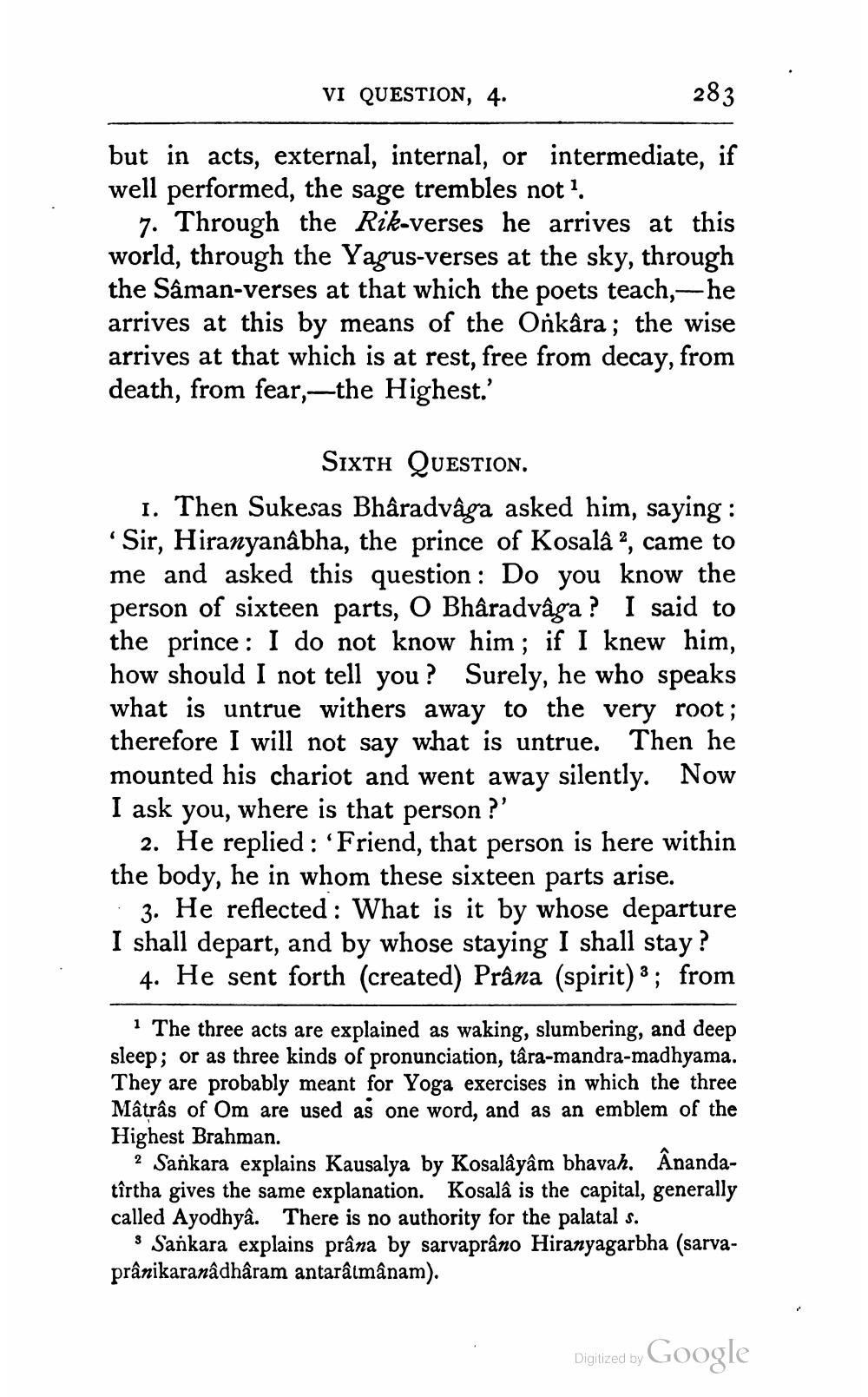________________
VI QUESTION, 4.
283
but in acts, external, internal, or intermediate, if well performed, the sage trembles not?
7. Through the Rik-verses he arrives at this world, through the Yagus-verses at the sky, through the Saman-verses at that which the poets teach,-he arrives at this by means of the Orkâra; the wise arrives at that which is at rest, free from decay, from death, from fear,—the Highest.'
Sixth QUESTION. 1. Then Sukesas Bhâradvậga asked him, saying: 'Sir, Hiranyanâbha, the prince of Kosalâ , came to me and asked this question: Do you know the person of sixteen parts, O Bhâradväga ? I said to the prince: I do not know him ; if I knew him, how should I not tell you? Surely, he who speaks what is untrue withers away to the very root; therefore I will not say what is untrue. Then he mounted his chariot and went away silently. Now I ask you, where is that person ?'
2. He replied: 'Friend, that person is here within the body, he in whom these sixteen parts arise. . 3. He reflected: What is it by whose departure I shall depart, and by whose staying I shall stay?
4. He sent forth (created) Prâna (spirit) 3 ; from
The three acts are explained as waking, slumbering, and deep sleep; or as three kinds of pronunciation, târa-mandra-madhyama. They are probably meant for Yoga exercises in which the three Mâțâs of Om are used as one word, and as an emblem of the Highest Brahman.
2 Sankara explains Kausalya by Kosalâyâm bhavah. Ânandatîrtha gives the same explanation. Kosalâ is the capital, generally called Ayodhyâ. There is no authority for the palatal s.
3 Sankara explains prâna by sarvaprâno Hiranyagarbha (sarvaprânikaranâdhâram antarâtmânam).
Digitized by
Digitized by Google




